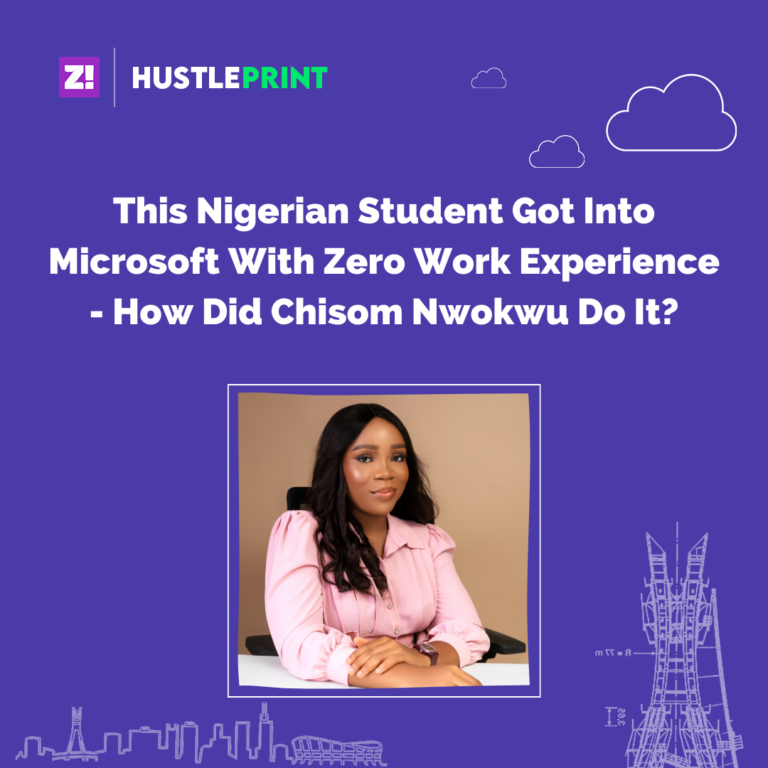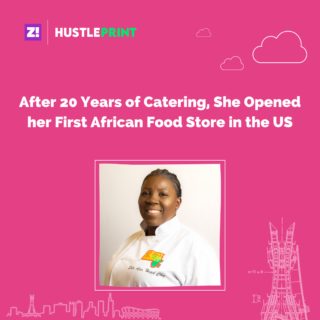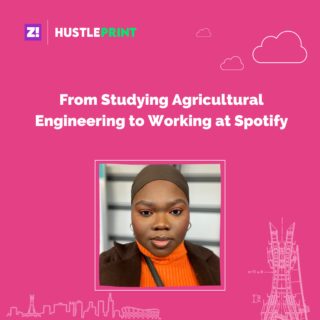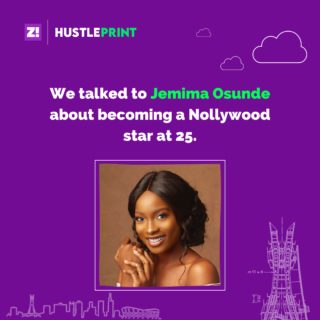Navigating life as a woman in the world today is interesting. From Nigeria to Timbuktu, it’ll amaze you how similar all our experiences are. Every Wednesday, women the world over will share their experiences on everything from sex to politics right here. This is Zikoko’s What She Said.
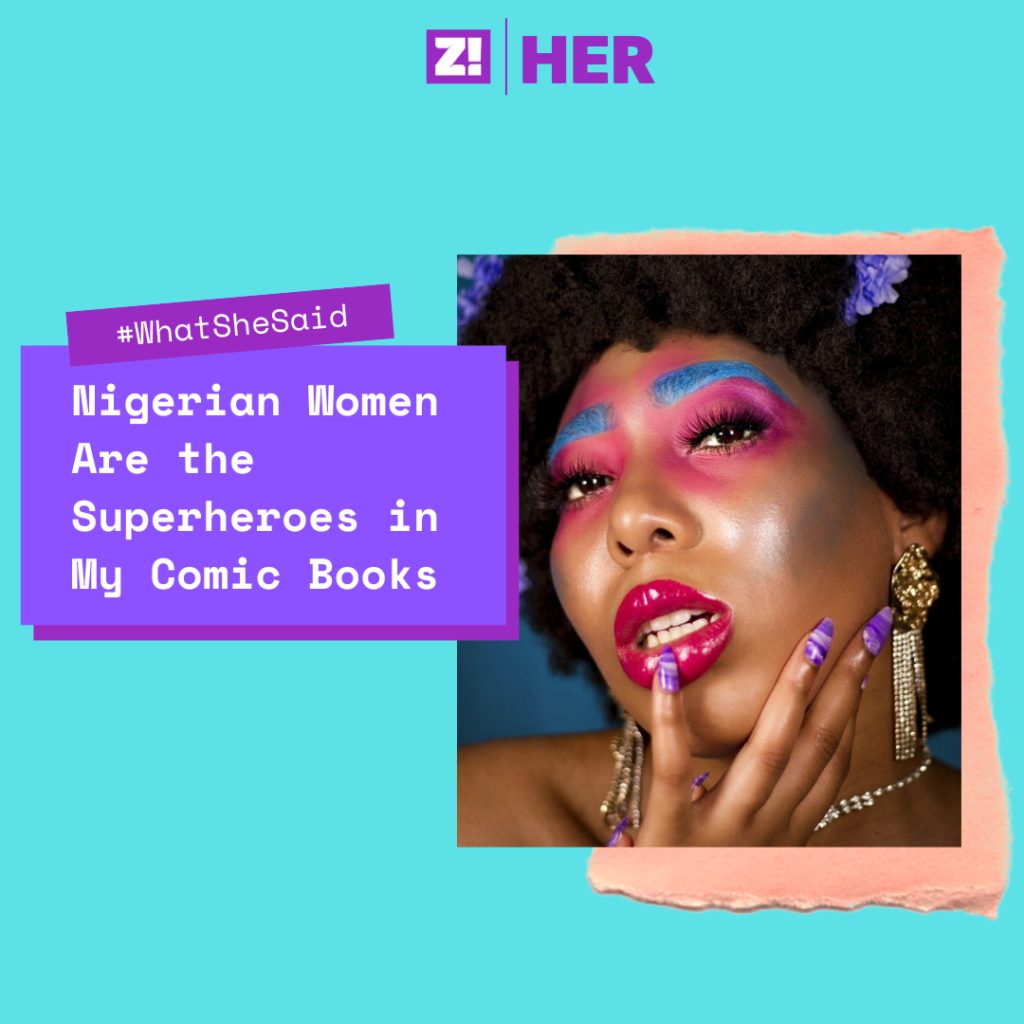
This week’s #ZikokoWhatSheSaid subject is Nanya Alily, a 25-year-old Nigerian woman. She talks about working with her family to tell African stories through comic books, becoming more conscious of being Nigerian after moving to South Africa and how it has influenced her art and music.
You have so many things going for you at 25. What’s that like?
I see myself as a multimedia creative. That’s the easiest English term to explain how I’m a music artist, comic book illustrator and social entrepreneur all at the same time. And those are just the three highlights of my life amongst the million other things I do like content creation, commercial modelling and poetry.
How did drawing comic books start?
My family has a passion for drawing, so when I was very young, my parents put that into Vanimax Comix, where we illustrate stories about powerful African characters. My dad, brother, sister and I draw. So everyone except my mum — the mumager overseeing everything.
So, a family business?
Yeah, I became a part of it at 16. But my dad had been working on comics before I was born. Macmillan actually published his first comic, Mark of the Cobra, in 1981. My mum was always aware of his talent. So when she saw her kids had the same interest, she nudged my dad to put the company together in 2010.
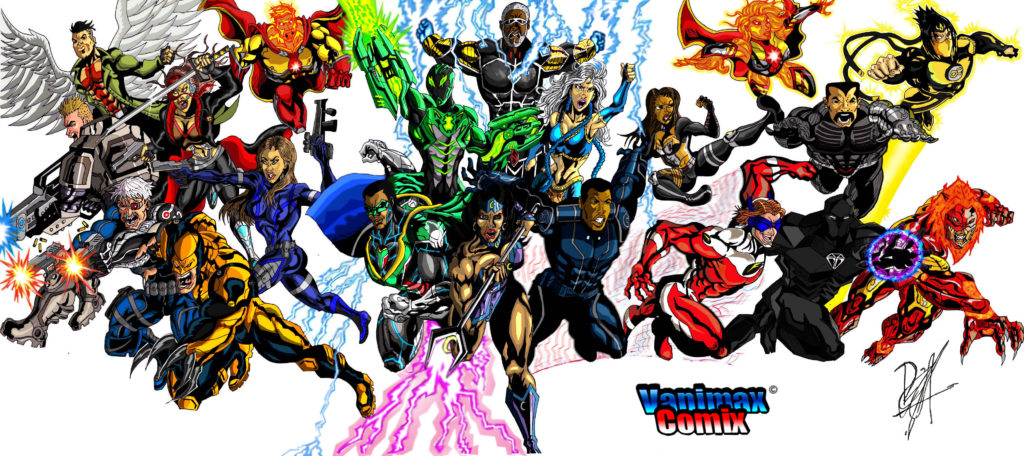
Wow
Yeah. And every character tells a story that reflects who we are as individuals. We have Jack Ebony, a Nigerian super spy (created and illustrated by my Father); Super South Africa, Africa’s finest hero (created and illustrated by my brother); Moonlight (created and illustrated by my sister).
That sounds so cool. What’s your story?
The Amina Angels. They’re four Nigerian female superheroes from different tribes; Ifeoma Anyawu who’s Igbo, Nsse Henshaw from Calabar, Yewande Ajayi who’s Yoruba and Halima Danjuma who’s Hausa. I know there are a lot more tribes, but I was interested in bringing these four together for a start.
What influenced the creation of these characters?
My background. Growing up, it didn’t seem cool to be African. I couldn’t relate to some of the characters I watched in cartoons because none of them looked like me. And when I drew, my own characters were always people who didn’t look like me. The consciousness didn’t happen until I was 16.
What changed?
We moved to South Africa, and my dad started to share stories about his life with my siblings and me; our Igbo heritage, experiencing the civil war as a young boy — essentially, what it meant to be Nigerian. And I felt disconnected from it because the media I consumed never showed it. Becoming aware of this through my dad made me want to tell those stories.
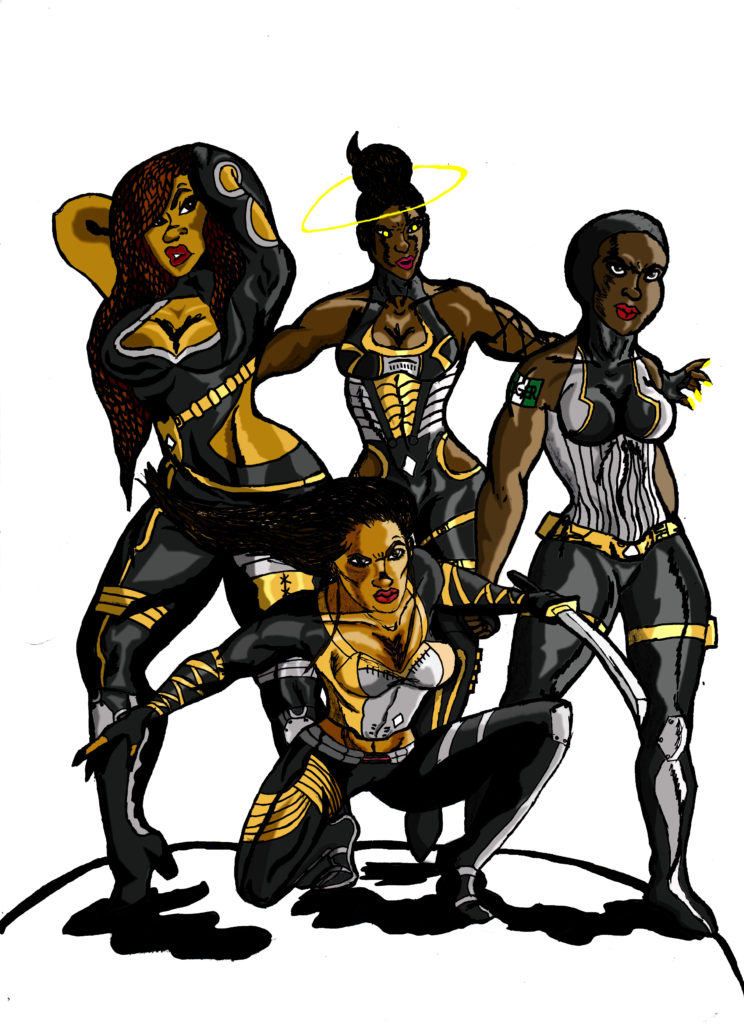
Your dad opening up about his life was really sweet
It was. Those conversations made me think about the Amina Angels, which I started illustrating at 15. It changed the way I drew features, like the characters’ hair. And the questions I got in high school also piqued my interest in culture. A lot of my classmates asked about my Nigerian language and background. I had few answers, but they could tell me more about what it meant to be Zulu or Xhosa. Thankfully, my Dad shared his stories.
Since you didn’t entirely understand the culture, how did you tell your stories?
My family travelled a lot because my dad did. I was born in Lagos. We moved to Ghana and back to Lagos before we settled in Owerri, where both my parents are originally from. At some point, we moved to Benin before finally relocating to South Africa when I was 13.
All before 13? That’s pretty cool
Yeah. Although I spent most of my pre-teen years in Nigeria, travelling made it difficult to learn my culture and be rooted in it. But I don’t regret the experience. I got to see the diversity in Nigeria and Africa, and that’s what inspires my stories.
So how did you progress into music?
That’s the thing. Everything kind of happened simultaneously. I’d been singing since I was six and started rapping in Grade 10. In Nigeria, I’d follow my friends from class to a community music centre, and we’d write and record songs. Then, I got into quality music production when I joined my local church’s choir. That was the trajectory to becoming an independent artist.
You don’t make music with your family?
Not exactly. It’s the one thing I do alone, but my family still has some influence. My dad is my biggest fan and invests in my music.
When did you release your first song?
My official releases were in 2018 and 2019. Before then, I only uploaded my songs on Soundcloud. I felt ready to put some money behind marketing Flex (2018) and I Sabi Who I Be (2019) because I wanted people other than my family to enjoy my music. I also wanted to move on from the amateurish phase of being a musician. Now, I’ve just finished recording my first EP, Isimbu, which means “the first one” in Igbo.
What’s it like being a Nigerian artist in South Africa?
I think my music is well received in South Africa because it’s different from what they’re used to. My sound isn’t tagged to any particular group of people. Nobody fixates on it being Nigerian music even with the mix of pidgin or Igbo. It’s just good music.
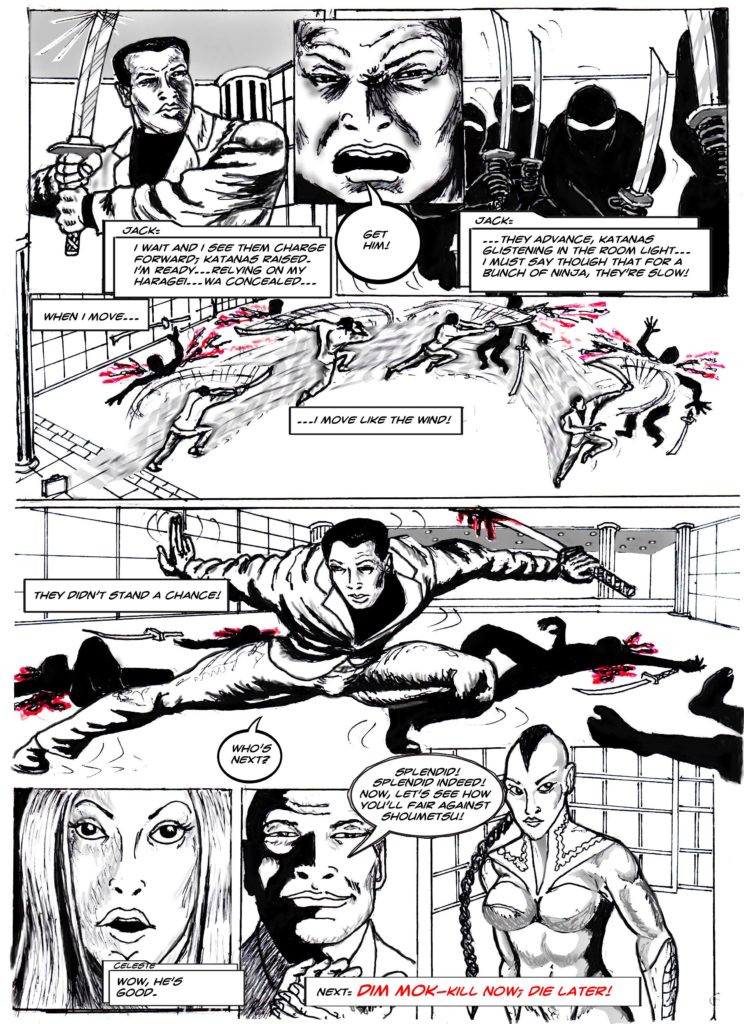
So you’re an illustrator and musician, and a social entrepreneur, at 25? What’s going to happen at 50, please?
LOL. I have no idea. But I started the initiative (The Queen’s Goals) for girls when I was 20. It started out as talking to girls at a local high school in Johannesburg. I didn’t want it to be a one-off thing, so I got my sister, friends and a few women from the church involved, and we’ve kept up with it since 2017.
If you had to pick one version of your life to stick to, what would you choose?
I don’t think I can choose. Discovering new facets of my talent is what makes my life interesting. It feels like there’s no cap. I wake up one day, inspired to put a vision together and I do it.
Well, since you can’t pick one, what has been the highlight for you?
In a creative family, it’s harder to find your voice, so finding my own voice and identity is something I’ve loved, and translating all of that into art and music has been amazing.
How does it feel to share that with your family practically all the time?
We have our collective love for drawing, writing and telling stories. But everyone has their own baby they personally nurture. For me, that’s music. My sister wants to be a model, my brother loves animation and my dad is focused on writing and publishing. My mum is the “let’s go get the bag” woman; she’s a professional motivator and truly inspires us all.
LOL. She knows what’s up
LOL. And I guess what we have is a blessing. It works well for the business and our personal lives. Everything I get to do is a reflection of my background as a Nigerian Igbo woman. I want other women to see themselves represented in my work.
If you’d like to be my next subject on #WhatSheSaid, click here to tell me why

